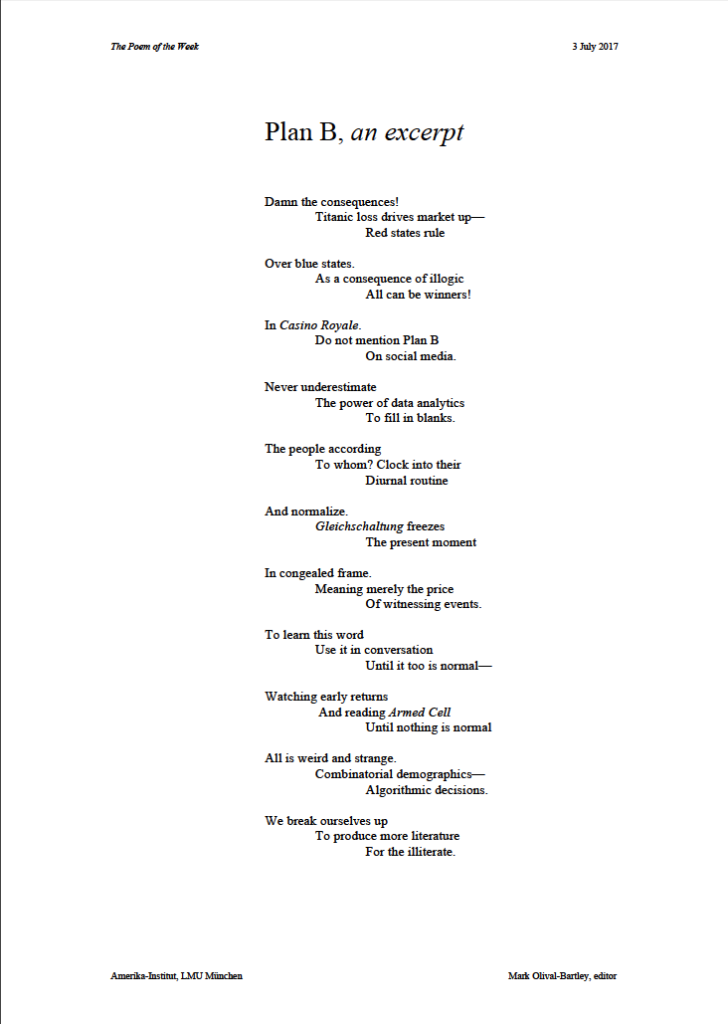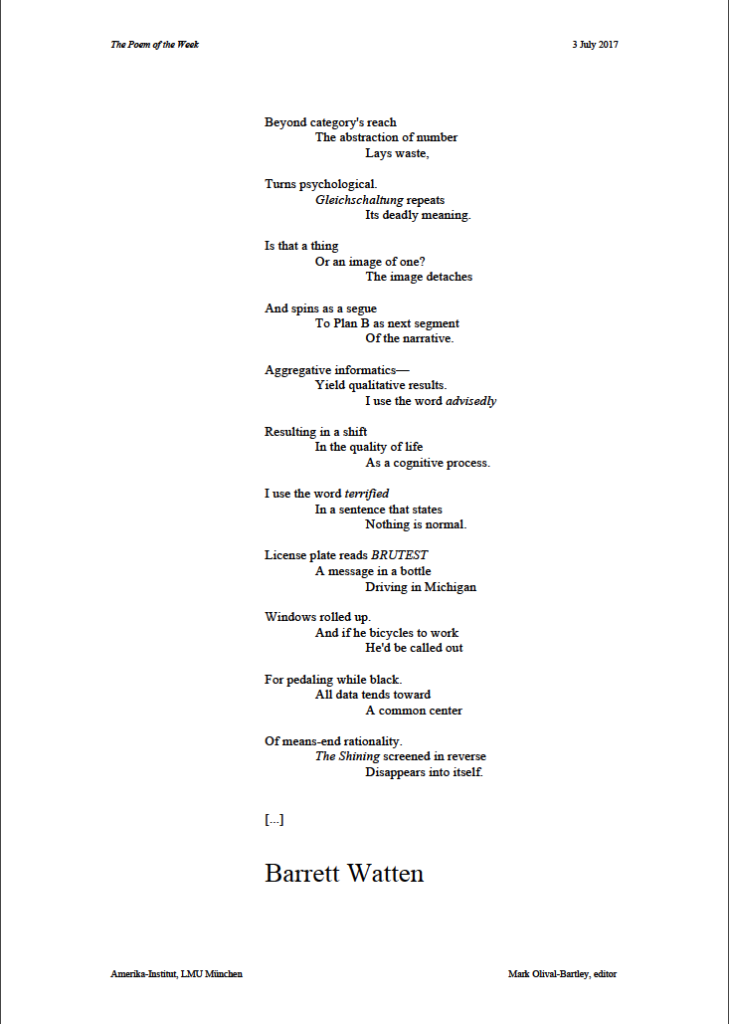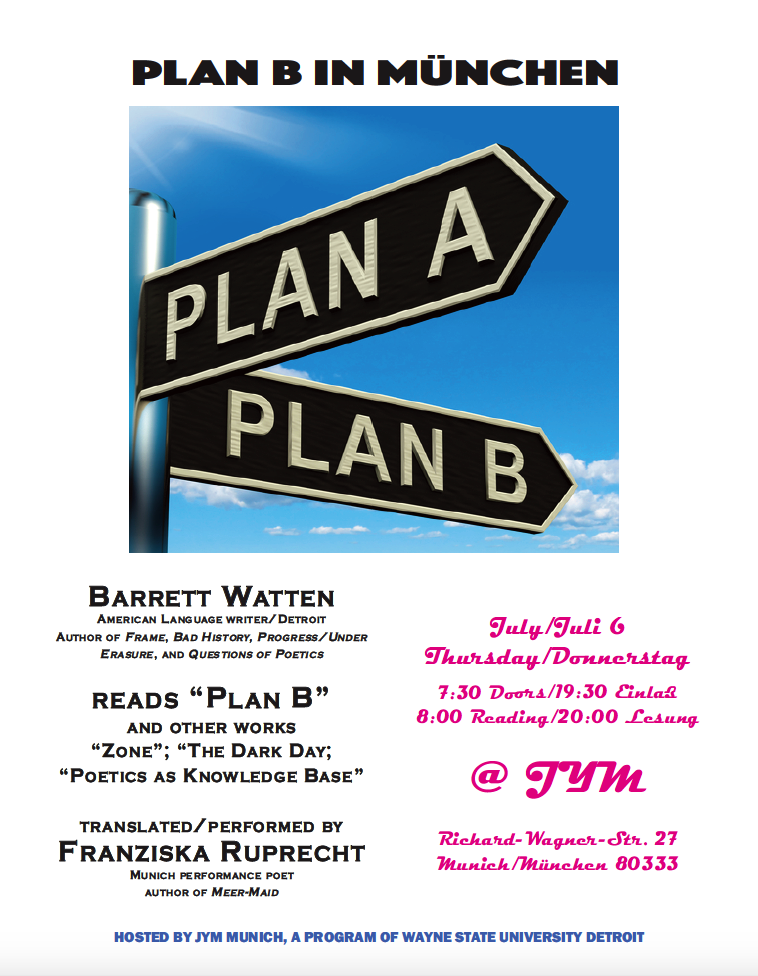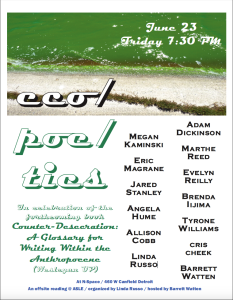Seminar: Questions of the Present
in Contemporary Poetics
@ MSA 19 Amsterdam
10–13 August 2017
to register click here
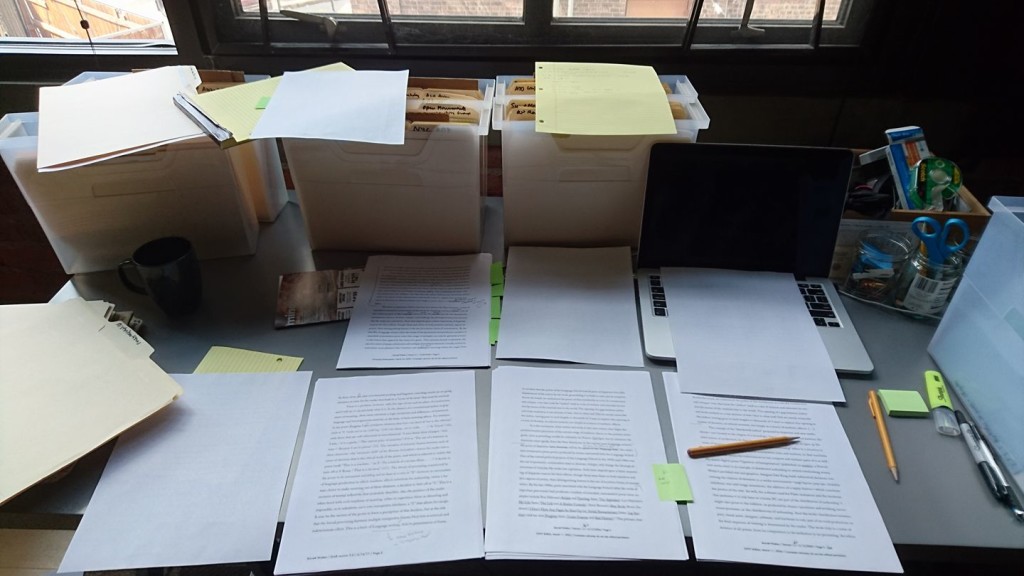
Since 2011, there has been an explosion of new writing in poetics as an academic discourse and a proliferation of new approaches to poetry that unite formal concerns (after Language writing, conceptualism, Flarf, and other avant-gardes) with radical accounts of the millennial present—in a manner reflecting on, but departing from, modernism. This seminar will perform several tasks: first, to survey recent writing in poetics that “question the present,” involving concerns of political economy, ideology and public discourse, documentary and digital sources, gender and sexuality, race and poets of color, hybrid forms, and multi-languaged writing/translation. Then, it will undertake an overview of new forms of writing that engage these questions of the present. Finally, it will ask how poetry and poetics can create new critical and creative, activist and interventionist, initiatives, to counter deformed public discourse(s) of our presentist epoch. What does it mean to question poetics and poetry as a historicism of the present?
Seminar organizer: Barrett Watten
Professor, English, Wayne State University
Contact: barrett.watten@gmail.com
Registration: MSA 19 website here
